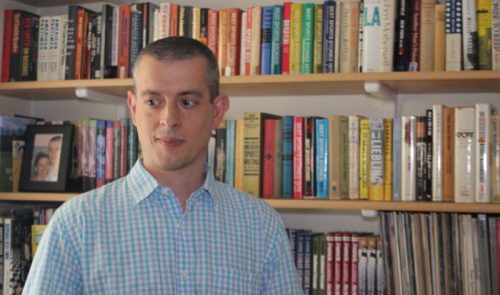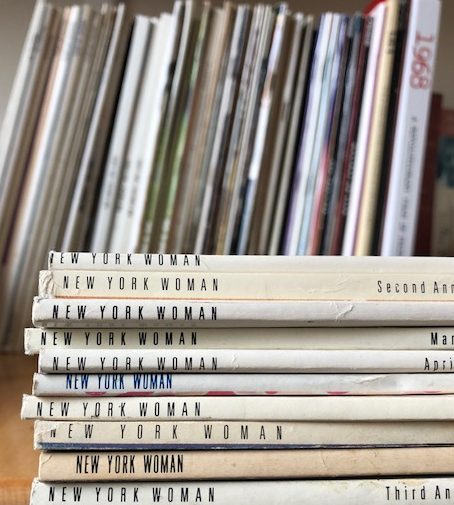Welcome to The Stacks Reader, an online trove of classic journalism and writing about the arts and culture that began innocently enough fifteen years ago in the microfilm room of the New York Public Library. I was there doing some research for a book and was blown away by how many cool and interesting publications were buried on microfilm. I’d be looking for one thing and find three more.
I xeroxed articles, converted them into PDFS and emailed them around to friends, then went back for more. Along the way I was introduced to newspaper and magazine writers and editors who hipped me to more writers. As I became friendly with writers—or, in many cases, their kin (W.C. Heinz’s daughter, Gayl, or Grover Lewis’s wife, Rae)—I thought it would be cool to reprint some stories, previously unavailable online, at my blog, Bronx Banter.
I did not have a thought of it becoming my life’s work.
To celebrate the 10th anniversary of the Banter, I reprinted a series of magazine articles with permission from the authors or their estates. It was such a success that Deadspin enlisted me to create The Stacks, a site devoted to curating and reprinting classic sports writing. Soon, I expanded it to a weekly column for The Daily Beast, concentrating on stories about the culture and the arts, all of which brought me to Esquire Classic, the magazine’s digital archive, where I have served as editor for the past two years.

The idea of The Stacks Reader comes from wanting to centralize all the pieces I have reprinted at the Banter, Deadspin and the Daily Beast and have them all under one roof, just over 300 in all. This is the foundation for a collection that I hope will grow into the thousands. So far, the topics lean heavily toward the arts and sports but looking ahead I hope to include writing about food, gender studies, politics, science, true crime, you name it.
We’ve got about a third of the collection up and ready for ya now and will roll out the rest over the next month.
Motivated less by nostalgia than by preservation, The Stacks Reader aims to be a living archive of memorable storytelling. Living because here in our Editor’s Notes section we will curate the collection—celebrating writers, highlighting publications, honoring our favorite personalities—with an eye on contextualizing these stories for today. We’ll also feature long, in-depth interviews with writers and editors in the hopes that we can offer compelling insight into how journalism worked, particularly in the second half of the 20th Century.
These days, we are constantly getting rid of things. Hell, our technology only lasts a few years before it needs to be replaced. If your parent or aunt dies and you go to clear out their house, you might find 15 years worth of Gourmet magazines in the attic or garage and think, “Damn, how cool.” But even if you do, most likely you’ll still throw them away. While there is no way to replicate the experience of books or magazines as objects online—you can’t hold them and experience them the same way—the truth is there is limitless space online. We would be foolish not to preserve the work of the dozens and dozens of terrific writers whose fame, even if it was relative to the narrow world of journalism, was fleeting and who are now in danger of being forgotten entirely.
As Hua Hsu wrote in The New Yorker last week:
I still buy old magazines, at flea markets and bookstores as well as on the Internet. It’s not just an exercise in nostalgia, a rediscovery of cherished old codes and secrets, a daydream about pin-rolled jeans. It’s about a different experience of time. The feeling I get when I pick up an old issue of The Face is a sense of boundedness. These magazines were portals to other lives, systems of taste I learned by acquiring the small talismans and minute gestures that held these worlds up. It’s why I used to make my own zines, sending signals into the wilderness. The universe was expansive and evolving, infinite and unknowable—except for those dozen times a year when a small part of it arrived on newsstands and in certain bookstores and came, momentarily, into focus.
I didn’t set out to do this but it encompasses everything I’m about—a bottomless fascination with the arts and an abiding commitment to cultural preservation. Hunting for treasure and then sharing it. Above all, what nourishes me is making connections with writers, or their families, and providing a space to share their work.
There’s more than enough bad stuff filling our head these days, it’s our duty to find the gems and pass ‘em around.
For more on this project, head over on to Don Van Natta’s Sunday Long Read Podcast, where I am a guest this week.
